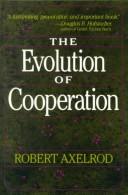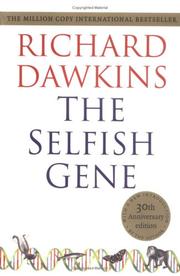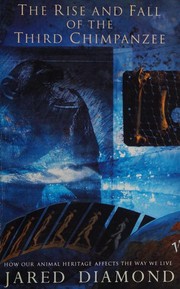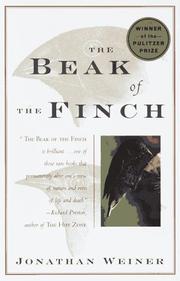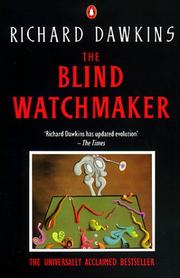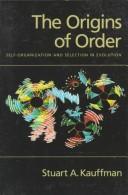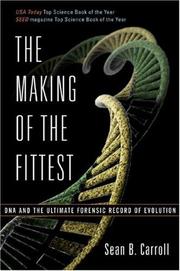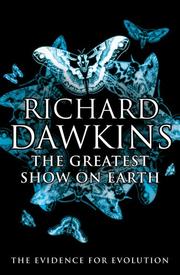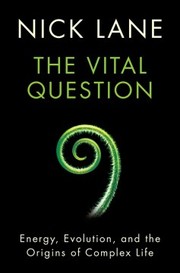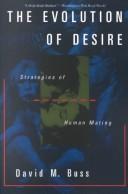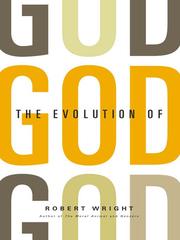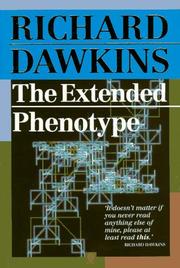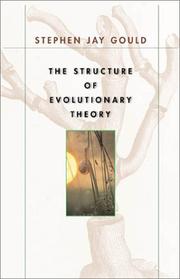Are you looking to dive into the fascinating world of evolution? Whether you’re a science enthusiast or simply curious about the origins of life, these 20 best books about evolution are sure to captivate and educate. From classic works by renowned scientists to compelling narratives on the history of life on Earth, there’s something for everyone in this curated list. Explore the theory of evolution, the impact of natural selection, and the diversity of life through these thought-provoking reads. Get ready to expand your knowledge and gain a deeper understanding of the natural world with these essential evolution books.
Contents
- 1 20 Best Evolution Books
- 2 The Evolution of Beauty
- 3 The Tangled Tree
- 4 The Serengeti Rules
- 5 The Evolution of Cooperation
- 6 The Selfish Gene
- 7 The Ancestor’s Tale
- 8 The Third Chimpanzee
- 9 The Beak of the Finch
- 10 The Red Queen
- 11 The Blind Watchmaker
- 12 The Origins of Order
- 13 The Language of Life
- 14 The Making of the Fittest
- 15 The Greatest Show on Earth
- 16 The Vital Question
- 17 The Evolution of Desire
- 18 The Evolution of God
- 19 The Origin of Species
- 20 The Extended Phenotype
- 21 The Structure of Evolutionary Theory
- 22 Final Thoughts on Best Evolution Books
- 23
20 Best Evolution Books
The Evolution of Beauty
by Richard O. Prum
The Evolution of Beauty by Richard O. Prum is a thought-provoking book about the evolution of beauty in the animal kingdom. Prum challenges the traditional views of evolution by suggesting that the development of extravagant traits in animals, such as the peacock’s elaborate tail, cannot be solely explained by natural selection. Instead, he argues that aesthetic preferences and the desire for beauty among animals have played a significant role in the evolution of these traits.
Prum’s engaging writing style and insightful research lead readers on a fascinating journey through the world of animal behavior and evolution. He introduces readers to various examples of beauty in nature, from the elaborate plumage of birds to the vibrant colors of fish, and challenges them to reconsider their understanding of evolution and sexual selection. This evolution book is a must-read for anyone interested in the intersection of science, nature, and aesthetics.
The Tangled Tree
by David Quammen
The Tangled Tree by David Quammen is a captivating and thought-provoking book about the interconnectedness of all life on Earth. In this fascinating exploration of the history of life, Quammen delves into the world of evolutionary biology, uncovering the complex web of relationships that exist between different species. Through engaging storytelling and meticulous research, Quammen reveals how the tree of life is not a simple, branching structure, but rather a tangled network of genetic exchanges and evolutionary leaps. This book on evolution challenges our traditional understanding of how species evolve and adapt, and offers a new perspective on the interconnectedness of all living organisms. With a keen eye for detail and a gift for storytelling, Quammen takes readers on a journey through the history of life, shedding light on the fascinating ways in which genetic information has been shared and reshaped over millions of years. The Tangled Tree is a must-read for anyone interested in the intricate and ever-evolving story of life on Earth.
The Serengeti Rules
by Sean B. Carroll
The Serengeti Rules by Sean B. Carroll is a captivating book about the intricate balance of nature and the powerful impact of the ‘rules’ that govern it. Carroll takes readers on a journey through diverse ecosystems, from the Serengeti to the depths of the ocean, to unravel the fundamental principles that shape the natural world. Through compelling storytelling and scientific insight, he reveals how these ‘rules’ dictate the abundance and diversity of life on Earth.
At its core, The Serengeti Rules is a fascinating exploration of the process of natural selection and the interconnectedness of all living organisms. Carroll’s narrative weaves together the stories of pioneering scientists who uncovered these rules, shedding light on their groundbreaking discoveries and the profound implications for our understanding of evolution and ecology. This book about evolution is a testament to the remarkable resilience and adaptability of life, offering a fresh perspective on the intricate web of life on our planet.
The Evolution of Cooperation
by Robert Axelrod
The Evolution of Cooperation by Robert Axelrod is a groundbreaking book about cooperation and competition in human society. Axelrod explores the concept of reciprocal altruism and how it has evolved over time. Using game theory and computer simulations, he demonstrates how cooperation can emerge and thrive in a world of self-interested individuals. The book delves into the strategies that promote cooperative behavior and the conditions that lead to its success. Axelrod’s work has had a significant impact on our understanding of social dynamics and has implications for a wide range of fields, from biology to economics to politics. This evolution book is a fascinating exploration of human behavior and the forces that drive us to work together for mutual benefit. The Evolution of Cooperation is a must-read for anyone interested in the intricate mechanisms that underlie cooperation in society.
The Selfish Gene
by Richard Dawkins
The Selfish Gene by Richard Dawkins is a groundbreaking book about evolution that challenges the traditional view of natural selection. Dawkins introduces the concept of genes as selfish entities that drive evolutionary processes, often at the expense of the organism’s well-being. He argues that genes, not organisms, are the primary unit of selection, and that they shape behavior and traits to ensure their own survival and reproduction.
Dawkins’ engaging and thought-provoking writing style makes complex scientific concepts accessible to a wide audience. He uses vivid examples and analogies to illustrate the power of genes in shaping the natural world, from the behavior of social insects to the dynamics of human culture. The Selfish Gene has had a profound impact on our understanding of evolution and has sparked widespread debate and discussion. It is a must-read for anyone interested in genetics, biology, and the fundamental forces that drive life on Earth.
The Ancestor’s Tale
by Richard Dawkins
The Ancestor’s Tale by Richard Dawkins is a fascinating book about evolution that takes readers on an epic journey through time, exploring the history of life on Earth. Dawkins uses the concept of a pilgrimage to tell the story of evolution, starting with humans and traveling back in time to our earliest ancestors. Along the way, he introduces readers to a diverse cast of characters, from familiar creatures like chimpanzees and dinosaurs to lesser-known organisms like bacteria and viruses.
This book is not just a traditional scientific exploration; it’s a compelling narrative that weaves together biology, history, and philosophy. Dawkins’s engaging writing style and insightful observations make The Ancestor’s Tale a captivating and educational read. Whether you’re a seasoned science enthusiast or just curious about the natural world, this book offers a thought-provoking and illuminating perspective on the interconnectedness of all life forms. The Ancestor’s Tale is a must-read for anyone interested in the grand story of our evolutionary past.
The Third Chimpanzee
by Jared Diamond
The Third Chimpanzee by Jared Diamond is a captivating book about the history of human beings and our place in the natural world. Through a blend of biology, anthropology, and history, Diamond explores the fascinating story of human evolution, discussing the genetic similarities between humans and chimpanzees and examining the factors that led to the development of human language, culture, and technology. The book delves into the complex relationships between humans and other species, as well as the impact of human behavior on the environment. Diamond’s engaging writing style and thought-provoking insights make this book a compelling read for anyone interested in the origins of human beings and the interconnectedness of life on Earth. Whether you’re a science enthusiast or simply curious about our evolutionary past, The Third Chimpanzee is a must-read for anyone eager to expand their understanding of the natural world and our place within it.
The Beak of the Finch
by Jonathan Weiner
The Beak of the Finch by Jonathan Weiner is a fascinating book on evolution that takes readers to the Galápagos Islands, where Peter and Rosemary Grant have been studying finches for over 20 years. Through meticulous observations and groundbreaking research, the Grants have been able to witness firsthand the process of natural selection and adaptability in action. Weiner’s narrative skillfully weaves together the scientific discoveries of the Grants with the larger story of evolution, making the complex concepts accessible and engaging for all readers. The book provides a compelling look at the impact of environmental changes on species, and how they evolve to survive and thrive in their changing surroundings. Weiner’s vivid storytelling and deep dive into the world of these iconic finches make The Beak of the Finch a captivating and thought-provoking read for anyone interested in the natural world and the forces that drive its evolution.
The Red Queen
by Matt Ridley
The Red Queen by Matt Ridley is a captivating book on evolution that delves into the intricate and never-ending battle between organisms to survive and reproduce. Ridley explores the concept of co-evolution, where species are in a constant race to outdo each other in a biological arms race. He delves into the idea that the competition for survival is not just between predators and prey, but also between parasites and hosts, and even between males and females within a species.
Ridley draws on a wide range of examples from the natural world to illustrate his points, from the camouflage techniques of insects to the complex mating rituals of birds. He also discusses the role of sexual selection and the evolutionary advantages of promiscuity. The Red Queen provides a thought-provoking and engaging look at the never-ending struggle for survival and the ways in which evolution shapes the natural world.
The Blind Watchmaker
by Richard Dawkins
The Blind Watchmaker by Richard Dawkins is a captivating book about evolution and the theory of natural selection. Dawkins, a renowned evolutionary biologist, presents a compelling argument for the power of natural selection in shaping the diversity of life on Earth. Through engaging prose and thought-provoking examples, he illustrates how the complex features of living organisms can arise through the gradual accumulation of small, beneficial changes over time. Using the metaphor of a blind watchmaker, Dawkins skillfully dismantles the notion of a designed, purposeful creation, and instead highlights the astonishing efficiency of natural selection in producing the intricate patterns of life we see today. This book is a must-read for anyone interested in the mechanisms of biological diversity and the profound implications of Darwin’s theory of evolution. With clear explanations and a passionate voice, Dawkins invites readers to explore the wonders of the natural world and the remarkable processes that have shaped it over millions of years.
The Origins of Order
by Stuart A. Kauffman
The Origins of Order by Stuart A. Kauffman is a groundbreaking book on evolution that explores the emergence of complexity in biological systems. Kauffman, a renowned theoretical biologist, presents a compelling argument for the self-organization of matter into complex structures, challenging traditional views of evolution. By delving into the dynamics of molecular interactions and the principles of self-organization, Kauffman offers a fresh perspective on the origins of life and the development of biological complexity. This evolution book is a captivating blend of scientific inquiry and philosophical reflection, inviting readers to rethink their understanding of how order arises in the natural world. With its thought-provoking insights and engaging writing style, The Origins of Order is a must-read for anyone interested in the mysteries of life’s evolution.
The Language of Life
by Francis S. Collins
The Language of Life by Francis S. Collins is a fascinating exploration of the genetic revolution and its impact on our understanding of human life. This captivating book delves into the intricate language of DNA and how it shapes our very existence. Collins, a renowned scientist and leader of the Human Genome Project, provides an insightful look at the breakthroughs in genetics and their implications for medicine, ethics, and the future of humanity. Through compelling storytelling and accessible explanations, Collins introduces readers to the wonders of genomics and its potential to revolutionize healthcare and personalized medicine.
With a keen focus on the evolution of genetics, this book offers a captivating journey through the history of DNA research and the profound insights it has provided into the origins of life. The Language of Life is a thought-provoking and illuminating read that will captivate anyone with an interest in the intricacies of the genetic code and its profound impact on our world.
The Making of the Fittest
by Sean B. Carroll
The Making of the Fittest by Sean B. Carroll is a captivating book on evolution that takes readers on a fascinating journey through the history of life on Earth. Carroll, a renowned evolutionary biologist, skillfully explores the concept of natural selection and how it has shaped the incredible diversity of life forms we see today. Through engaging storytelling and compelling scientific evidence, the author illustrates how the process of adaptation has driven the evolution of species over millions of years.
This evolution book delves into the intricate mechanisms behind genetic variation and the role it plays in the survival and reproduction of organisms. Carroll’s accessible writing style makes complex scientific concepts understandable for readers of all backgrounds, making The Making of the Fittest an enlightening and thought-provoking read. Whether you’re a biology enthusiast or simply curious about the natural world, this book about evolution will leave you with a deeper appreciation for the remarkable forces that have shaped life as we know it.
The Greatest Show on Earth
by Richard Dawkins
The Greatest Show on Earth by Richard Dawkins is a captivating book about evolution. Dawkins, a renowned evolutionary biologist, takes readers on a fascinating journey through the evidence for evolution, from the fossil record to DNA sequencing. With his signature wit and clarity, Dawkins explains the principles of natural selection and the overwhelming evidence that supports the theory of evolution. He also addresses common misconceptions and challenges from creationists, providing compelling rebuttals backed by scientific research.
This evolution book is not only informative but also thought-provoking, as Dawkins delves into the implications of evolution for our understanding of the natural world and our place in it. The Greatest Show on Earth is a masterpiece that celebrates the beauty and complexity of life while demystifying the process of evolution. Whether you are a seasoned science enthusiast or a curious reader, this book is a must-read for anyone interested in understanding the profound impact of evolution on the living world.
The Vital Question
by Nick Lane
The Vital Question by Nick Lane is a thought-provoking book on evolution that delves into the fundamental question of the origin of life. Lane explores the intricate processes that have shaped the evolution of life on Earth, from the emergence of the first cells to the development of complex organisms. Through his engaging narrative, Lane challenges traditional views on the origins of life and presents groundbreaking theories that shed light on the mysteries of evolution.
Using a combination of scientific research and compelling storytelling, Lane takes readers on a journey through the history of life, unraveling the complexities of cellular processes and the role of energy in driving evolutionary change. His exploration of the interplay between genetics, biochemistry, and environmental factors offers a fresh perspective on the forces driving evolution. The Vital Question is a captivating and insightful book about evolution that will inspire readers to reconsider their understanding of the origins of life and the forces that have shaped the diversity of living organisms on our planet.
The Evolution of Desire
by David M. Buss
The Evolution of Desire by David M. Buss is a captivating book about evolution and the complexities of human mating. Buss, a renowned evolutionary psychologist, delves into the deep-rooted biological and psychological mechanisms that shape our desires and behaviors when it comes to finding a mate. Drawing on decades of research and fascinating real-life examples, he explores the evolutionary forces that drive human mating strategies, from short-term flings to long-term relationships.
Readers will gain a compelling insight into the evolutionary underpinnings of attraction, jealousy, and infidelity, as well as the role of culture in shaping our mating choices. Buss’s accessible writing style and thought-provoking analysis make this evolution book a must-read for anyone curious about the science behind our romantic inclinations. Whether you’re interested in psychology, biology, or simply understanding the complexities of human relationships, The Evolution of Desire offers a captivating journey into the mysteries of human mating.
The Evolution of God
by Robert Wright
The Evolution of God by Robert Wright is a captivating exploration of the history and development of religious beliefs throughout human civilization. This thought-provoking book delves into the evolution of religious ideas, examining how our understanding of God has transformed over time. Wright presents a compelling argument that the concept of God has evolved alongside human societies, influenced by social, political, and economic factors.
Through meticulous research and engaging storytelling, Wright traces the evolution of religious beliefs from ancient polytheistic traditions to modern monotheistic faiths. He discusses the impact of cultural exchange, conquest, and globalization on the development of religious thought, shedding light on the interconnectedness of different belief systems.
Wright’s Evolution of God is a fascinating and insightful read that offers a fresh perspective on the history of human spirituality. Whether you’re interested in anthropology, sociology, or theology, this evolution book provides a rich and illuminating exploration of how our understanding of God has evolved over millennia.
The Origin of Species
by Charles Darwin
The Origin of Species by Charles Darwin is a groundbreaking book on evolution that forever changed our understanding of the natural world. Published in 1859, this seminal work laid the foundation for the scientific theory of natural selection and the process of adaptation in species over time. Darwin’s meticulous observations, detailed evidence, and compelling arguments challenged the prevailing beliefs of his time and sparked a revolution in the field of biology.
In this influential book about evolution, Darwin presents a wealth of evidence from various scientific disciplines to support his theory, demonstrating the interconnectedness of all living organisms and the gradual transformation of species over generations. His eloquent and thought-provoking writing style engages readers in the fascinating study of the natural world and the complex mechanisms of evolution. The Origin of Species continues to be a timeless classic that has shaped our understanding of the diverse forms of life on Earth and remains a must-read for anyone interested in the science of evolution.
The Extended Phenotype
by Richard Dawkins
The Extended Phenotype is a groundbreaking book on evolution by Richard Dawkins that challenges the traditional view of genes as mere replicators. Instead, Dawkins argues that genes are active agents in their own survival, shaping the environment around them through their effects on organisms and their behavior. This influential book about evolution introduces the concept of the extended phenotype, which encompasses all the effects a gene has on its surroundings, including not only the organism’s body but also its behavior and the environment it creates. Dawkins uses compelling examples from the animal kingdom to illustrate his ideas, making this evolution book a fascinating and thought-provoking read for anyone interested in the natural world and the forces that shape it. The Extended Phenotype is a must-read for those seeking a deeper understanding of the complex interplay between genes, organisms, and their environment.
The Structure of Evolutionary Theory
by Stephen Jay Gould
The Structure of Evolutionary Theory by Stephen Jay Gould is a monumental book on the science of change and development in living organisms. This compelling and comprehensive book about evolution delves deep into the intricate and complex nature of the evolutionary process, offering a thorough analysis of the mechanisms and patterns of biological evolution.
Gould’s evolution book is a captivating exploration of the history of life on Earth, as well as a profound investigation into the underlying principles and dynamics of evolutionary change. With a keen eye for detail and a gift for clear and engaging prose, Gould presents a wealth of evidence and argument to support his innovative theories and insights.
Whether you are a seasoned scholar or an enthusiastic amateur, The Structure of Evolutionary Theory is an essential read for anyone interested in the fascinating subject of biological evolution. This book on evolution is a thought-provoking and enlightening journey through the complexities of life’s development, and it is sure to leave a lasting impression on all who delve into its pages.
Final Thoughts on Best Evolution Books
There you have it, the 20 best books about Evolution that every book lover and science enthusiast should read. From classics like “On the Origin of Species” to modern works like “The Selfish Gene,” these books offer a comprehensive and fascinating exploration of the theory of evolution. Whether you’re a student, a researcher, or simply curious about the natural world, these books are sure to expand your understanding of evolution and its profound impact on the world around us.
Which book about Evolution is best?
The best book on Evolution can vary with personal preference, but three widely recommended titles are:
- The Evolution of Beauty by Richard O. Prum,
- The Tangled Tree by David Quammen,
- The Serengeti Rules by Sean B. Carroll.
Each offers valuable insights and could be a great starting point.
What are the best books to learn about Evolution?
For those looking to learn about Evolution, there is a wealth of literature that can provide a comprehensive understanding of the subject. Some of the most highly recommended books include:
- The Evolution of Beauty by Richard O. Prum,
- The Tangled Tree by David Quammen,
- The Serengeti Rules by Sean B. Carroll,
- The Evolution of Cooperation by Robert Axelrod,
- The Selfish Gene by Richard Dawkins,
- The Ancestor’s Tale by Richard Dawkins,
- The Third Chimpanzee by Jared Diamond,
- The Beak of the Finch by Jonathan Weiner,
- The Red Queen by Matt Ridley,
- The Blind Watchmaker by Richard Dawkins
These books offer a range of perspectives on Evolution, covering various aspects and approaches to the subject.
What are the best books about Evolution?
The best books about Evolution are:
- The Evolution of Beauty by Richard O. Prum,
- The Tangled Tree by David Quammen,
- The Origins of Order by Stuart A. Kauffman,
- The Language of Life by Francis S. Collins,
- The Beak of the Finch by Jonathan Weiner,
- The Ancestor’s Tale by Richard Dawkins.
Each offers unique insights into the subject. While these books about Evolution are highly regarded, it’s important to note that any list of ‘best’ books is subjective and reflects a range of opinions.
What are the best Evolution books of all time?
Choosing the best Evolution books of all time can vary depending on who you ask, but five titles that are often celebrated include
- The Evolution of Beauty by Richard O. Prum,
- The Tangled Tree by David Quammen,
- The Selfish Gene by Richard Dawkins,
- The Beak of the Finch by Jonathan Weiner,
- and The Origins of Order by Stuart A. Kauffman.
Each of these books has made a significant impact in the field of Evolution and continues to be influential today.




